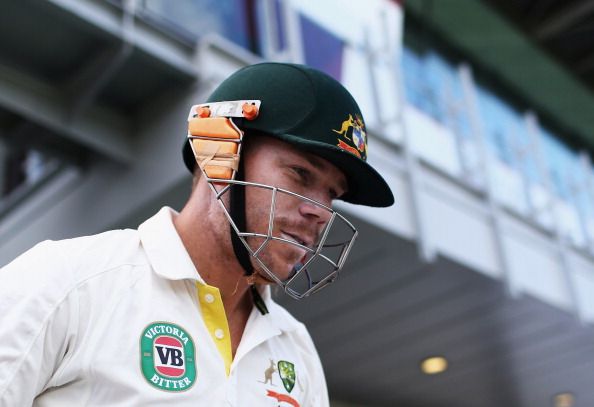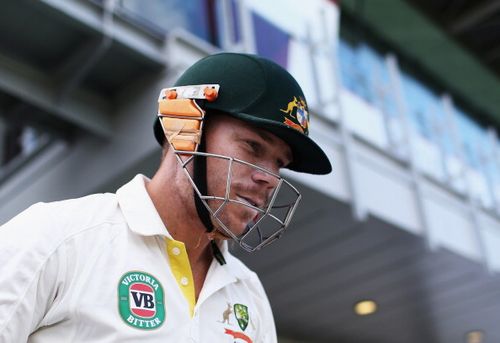
Why booing David Warner was justified

David Warner
‘Bad boys’ have never really featured as prominently in the gentleman’s game as much as any other sport. If you played cricket, you weren’t only groomed to play with a straight bat, but a set of values were inculcated into your daily regime for you to follow while on the field and off it. To play cricket was to be a part of the elite, the slice which constituted the royal patrons of the planet.
Today, we live with a far more egalitarian outlook towards the game. You could be a prince or a pauper, but the cricket field acts as a leveller for people where the third estate needn’t make heads roll in order to topple their opponents. All it takes is a moment of magic, an innings of insanity, and a team willing to grind through the rigours of bat and ball.
Cricket today, though, is about far more than just shaking your opponent’s hand after losing. There’s history attached to every fixture, there’s large amounts of money at stake, there’s personal reputations to uphold. Several permutations and combinations affect every single aspect of the game, making it far more complex than the time when cricket was just for the ‘gentlemen’ of society. This ultimately leads to high amounts of pressure, and where there’s large amount of pressure there’s a requirement to vent, and venting comes in various forms and fashions. This brashness, seen first in the exploits of Ian Botham and Shoaib Akhtar and now David Warner, is one of the primary methods of releasing the pressure of intense scrutiny a cricketer is under, coupled with a general lack of discipline in formative years. It’s simple mathematics when you think about it.
But while we are intensely interested in the outside lives of these rashly behaved cricketers – keeping our eyes peeled for any sort of news regarding their misdemeanours – we also intensely hate them at the same time. Warner’s reception at Old Trafford was predominantly backed by the large number of English supporters (and secretly by Joe Root), but a significant section of the Aussie media seem to have taken a disliking towards the left-hander and are waiting for every opportune moment to pounce on and tear the little man apart.
Warner’s fall from grace has been nothing short of spectacular. From being one of the most sought after talents in the world, he’s grown a suspicious moustache and is repeatedly involved in moronic acts of irresponsibility, rather than strong batting partnerships. The crowd response to his arrival at the crease, to his absolutely baseless need to review his straightforward dismissal, to him walking back to the pavilion being cheered on by the spectators sum up, more or less, his career in reverse.
So where did Warner’s ‘gentlemanly’ behaviour disappear?
Cricket’s current generation are far more hot-headed than the past. In India we have Virat Kohli, looking for reasons to raise his arms in protest against an umpire. Kohli’s rash attitude has got him into trouble more times than once and seems to be on the path to join a long list of page three campaigners such as Shane Warne and Harbhajan Singh. There’s an immaturity that’s attached to today’s cricket, where passion over-rides good sense with a streak of flames and catapults into a frenzy of recklessness. As mentioned before, today cricket is defined by far more than just Team A against Team B.
There was a large cheer that shook the stadium when the ball deflected off Matt Prior’s thigh and into Jonathan Trott’s hand, and an equally loud collective jeer resonated when Warner decided to absurdly review his dismissal. The people watching the game have realised that it is elements like David Warner who are turning the game into a fight rather than a sport. Kohli was recently booed during the IPL, as well as the tour to Australia where we he even flipped the forbidden finger to a section in the stands. Cricketers are people, and people can be flawed. But to be within the oval of a cricket field means upholding far more than just a bad day at the office. You’re representing a team, a country, and more importantly, a sport.